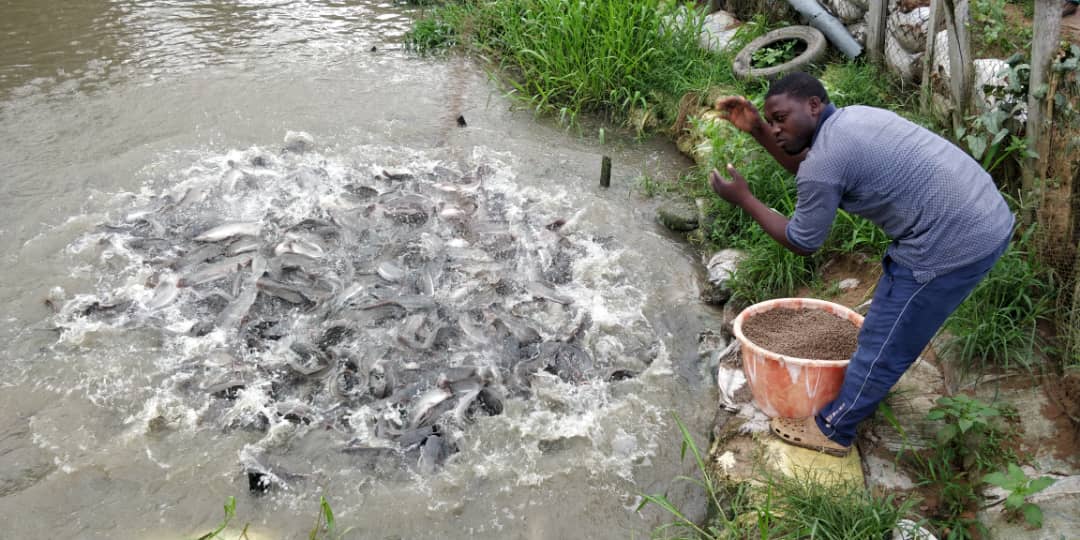
With capture fishery production relatively static since the late 1980s, aquaculture has been responsible for the continuing impressive growth in the supply of fish for human consumption. The demand for fish is rising globally. The supply of fish from aquaculture, where 70-80% of production still originates from smallholder farming practices, needs to grow substantially and sustainably to meet future demands. African aquaculture production remains significantly lower than other regions, contributing to the low level of per capita apparent fish consumption of 11.2 kg/year; half the global average. However, African aquaculture is currently growing faster than any other region in the world, but it is highly skewed among few African nations. African aquaculture needs significant growth to meet the region's accelerating demand for fish. Nigeria is a fish-eating country, but the full potential of the fish sector, especially fish supply from aquaculture, has not been adequately realized. The government of Nigeria recognizes the importance of aquaculture for reducing hunger and malnutrition and increasing nutrition and livelihoods of Nigerian poor, including women and youth. Increasing the contribution of aquaculture requires sustainable production. Improving the social and economic efficiency of aquaculture production, processing and marketing systems is paramount for making the sector sustainable, especially in an era where costs of production inputs are becoming scarcer and more expensive. Early work indicates inefficiencies at every point of the aquaculture value chain in Nigeria. Waste of raw-material inputs, waste of space, waste of movement, waste of labor, loss of product (fish), and postharvest loss (spoilage) are such inefficiencies, increasing cost of production and reducing profit, which in turn make Nigerian aquaculture less competitive in both local and global markets.
This research seeks to apply a concept entitled “Lean Production Systems” for improving operational efficiency, reducing postharvest losses, improving waste management, and decreasing the cost of production of catfish and tilapia in Nigerian aquaculture. The “Lean Production Systems” or Lean concept was first developed as the “Toyota Production System” and made famous for the monumental competitive advantage it gave to Toyota Manufacturing in car production throughout the latter half of the 20th century. The goal is to explore the use of Lean operation and production technology approaches in a developing country aquaculture context, specifically in Nigeria, to identify benefits that are conferred to small-scale fish farmers as well as larger (e.g. corporate) aquaculture operations. In short, the goal is to prevent the loss of value along the value chain and economize the process of raising fish and bringing them to market using Lean technology. Given its measurable and consequential success at improving operations across sectors and cultures, we believe giving Nigerian fish farmers Lean tools and techniques could improve profitability and operational efficiencies of aquaculture, and ultimately make farmed fish more affordable and competitive in the marketplace. The activity will develop tailor-made Lean curriculum and tools for improving efficiency of Nigerian smallholder aquaculture and processing operations. The Fish Innovation Lab's Nigeria Cold-Chain Analysis Quick Start Activity has provided the baseline, evidence-based information required for developing, adopting, and implementing appropriate Lean tools. This new Lean activity will train over 200 farmers and processors directly and an estimated 1,200 farmers and processors indirectly in applying tailor made Lean tools and technologies in their production and processing systems. Successful implementation of this activity and scaling to the national level beyond the activity lifetime could improve health and wealth among Nigerian poor through increased income from better production, processing, and marketing of their products.
Executive Summary of Results and Findings
Final Technical Report: Lean Production Systems in Nigeria
